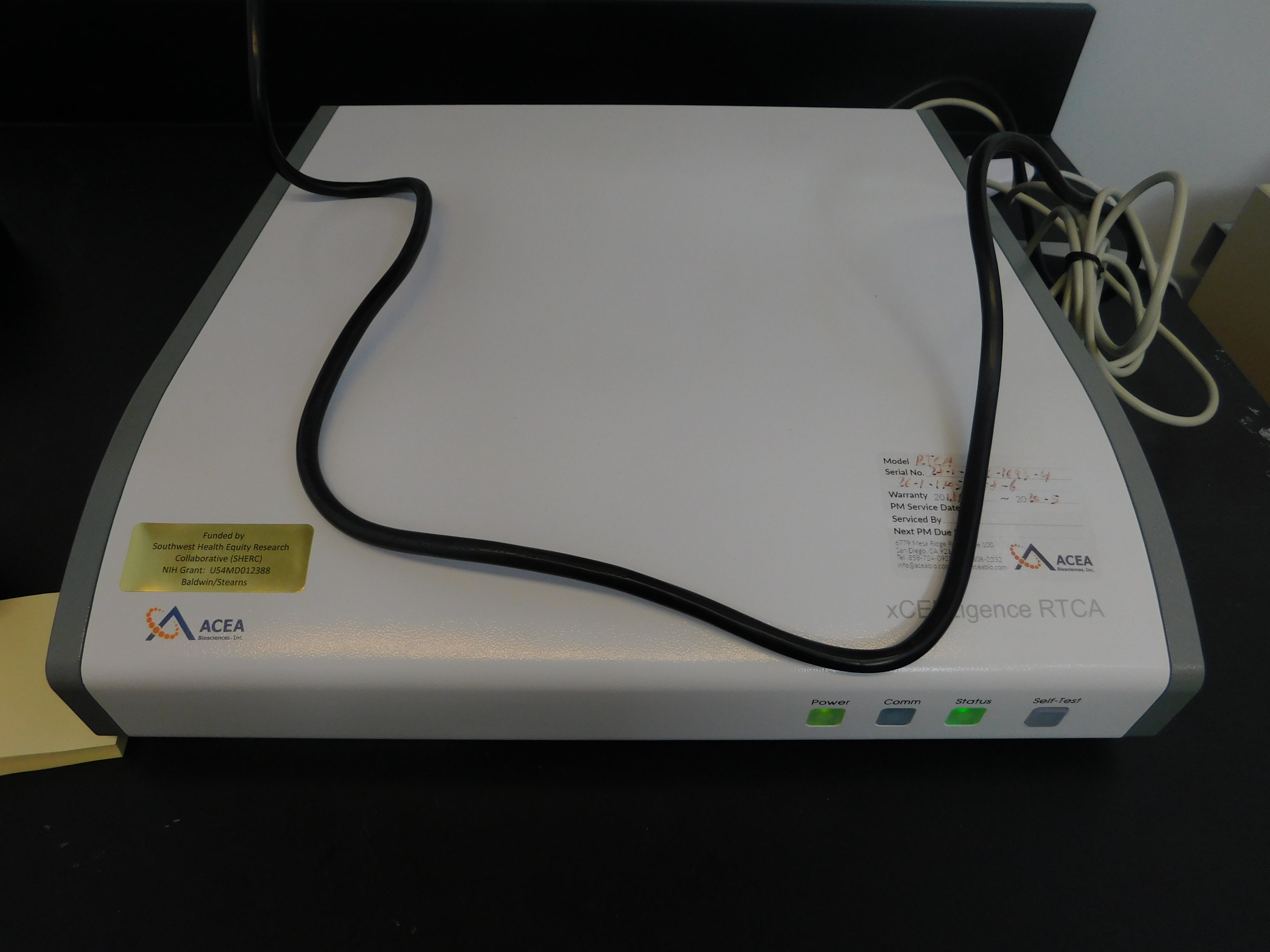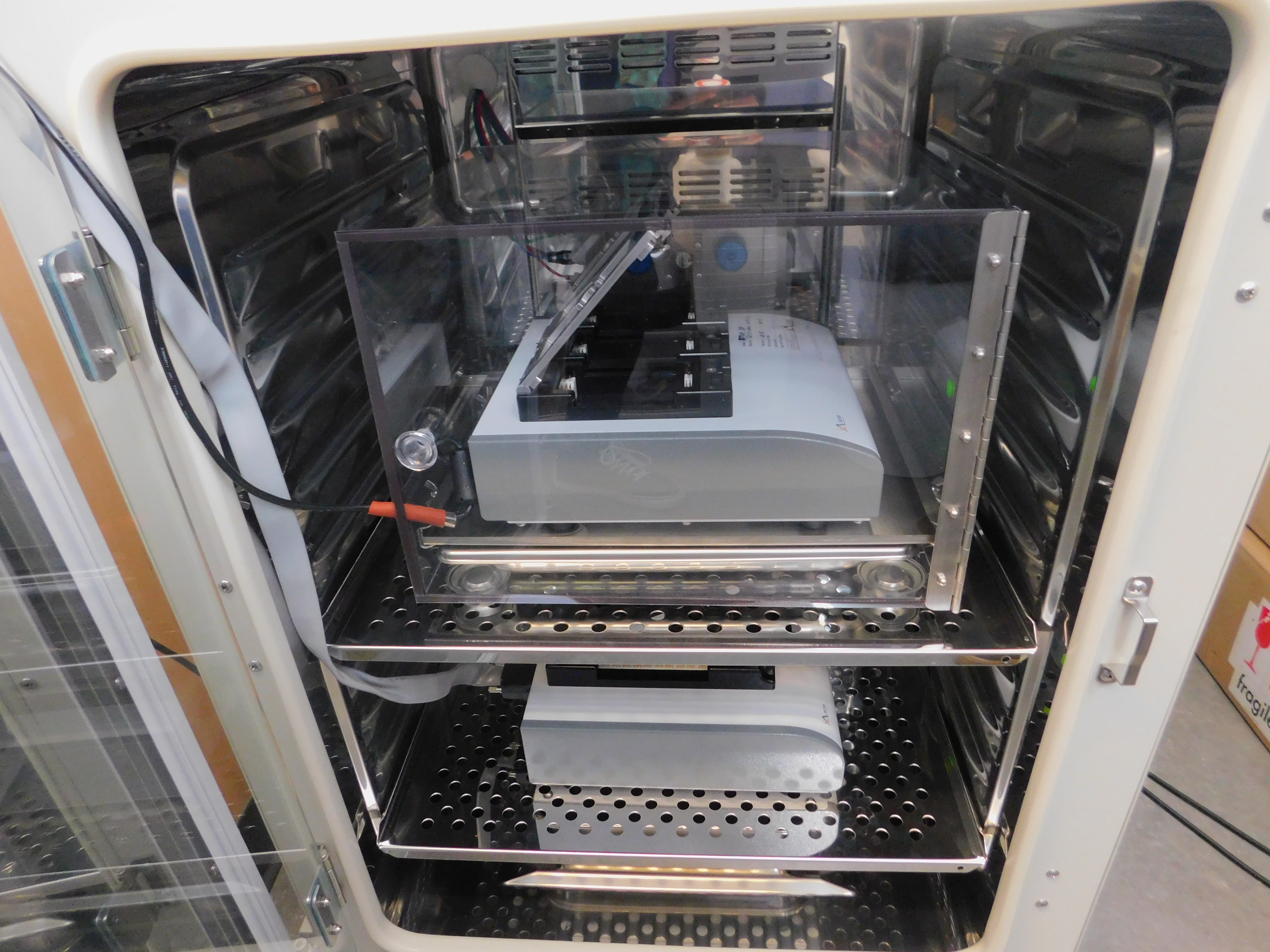Co-Authors:
Christine Kirby
Program Coordinator
Research Infrastructure Core
Southwest Health Equity Research Collaborative
Archana Varadaraj
Assistant Professor
Chemistry & Biochemistry
Equipment Spotlight: ACEA xCELLigence System
Continuously monitor live cell proliferation, morphology and viability with label free assays
I sat down with Dr. Archana Varadaraj, an Assistant Professor in the Department of Chemistry and Biochemistry, to better understand the recently SHERC (Research Infrastructure Core) purchased xCELLigence Real Time Cell Analysis Instrument. Feeling a bit overwhelmed to digest the terminology I knew was bound to come my way, I did a little research. As advertised on its site (and explained by Dr. Varadaraj), the xCELLigence systems “continuously monitor live cell proliferation, morphology and viability with label free assays.”1 Dr. Varadaraj explained further that the system allows researchers to save time, money, and secondary analysis methods (often error prone). Currently, there are four NAU researchers using the machine for various studies.

To get into the details of what Dr. Varadaraj and her colleagues do with the xCELLigence Real Time Cell Analysis Instruments, I asked about her current research. Dr. Varadaraj’s background is in cancer biology; specifically, breast and renal cancers. Emphasizing the equipment, Dr. Varadaraj described how important cell migration, adherence, proliferation, invasion, and toxicity are for cancer research. She discussed that real time or kinetic cell assays are more informative than “end point” experiments and the xCELLigence systems are currently the only available equipment that can provide such information.

“Since the only downside to this equipment was that it was expensive!” Dr. Narendiran Rajasekaran (Cancer Immunology) and Dr. Varadaraj asked the vendor if they could test the equipment for a week before determining whether it was a worthwhile purchase. The two PIs ran multiple immune cytotoxicity and cell toxicity experiments, students ran experiments each and after they were comfortable with the results, thought the instrument might be a good addition to NAU and to the NAU researchers. Prior to Dr. Varadaraj’s arrival to NAU, there was little focus on wet-lab cancer research. For opening up this line of work, Dr. Varadaraj applauded NAU’s broadening research emphasis. In terms of health equity research, Dr. Varadaraj explained that specific cancers with prevalence in certain populations could also be studied with this equipment.
Dr. Varadaraj showed me where the instrument was set-up and the sterile conditions it is being maintained under, to allow live cell studies.
Check out the work Dr. Varadaraj and her colleagues are doing at NAU!
Also check out RIC Multi-User Equipment database for an up-to-the-minute list of equipment.
1https://www.aceabio.com/products/xcelligence-rtca/
Research reported in this publication was supported by the National Institute On Minority Health And Health Disparities of the National Institutes of Health under Award Number U54MD012388. The content is solely the responsibility of the authors and does not necessarily represent the official views of the National Institutes of Health.